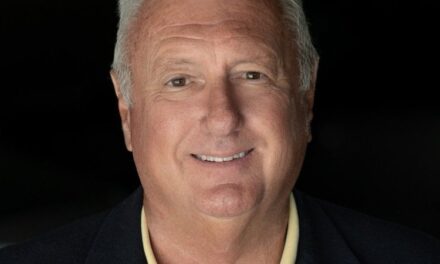Michael Terence Rave, Founder and CEO of Brandywine Legal Recruiting, LLC, has a distinguished career in corporate governance, capital markets, and business development. From September 2020 to May 2022, he served at Valley National Bank, where he ensured strict compliance with regulatory standards and managed high-profile M&A transactions. His leadership extended to corporate governance and close collaboration with external counsel on capital markets deals.
Prior to this, Michael spent over two decades at Day Pitney LLP, where he advised on corporate governance and led mergers, joint ventures, and capital markets transactions valued up to $2 billion across various industries. His career began at Greenbaum Rowe Smith Ravin Davis & Himmel, where he honed his skills in SEC filings, LLC operating agreements, and corporate governance documentation.
Michael holds both a J.D. and a B.A. in Financial Management from The Catholic University of America. An active contributor to thought leadership, his work has been published in the NJ Law Journal. Outside of his professional career, Michael is a dedicated triathlete and a lead volunteer at the Brandywine Valley SPCA. His focus on fostering meaningful connections through his recruiting firm drives his current success in placing corporate attorneys in leading roles.
He is a passionate triathlete training for nationals and a committed volunteer at the Brandywine Valley SPCA, where he serves as a lead volunteer.
Why do you believe mental resilience is as important as physical fitness in triathlon training?
Triathlons are incredibly demanding, both physically and mentally. While physical training prepares your body for the rigors of the race, it’s your mind that keeps you going when fatigue sets in or unexpected challenges arise. Mental resilience helps you manage doubts, stay focused, and adapt to changing conditions during the race. It’s the edge that separates the good athletes from the truly great ones.
Can you share an example of a mental strategy you use during races?
Visualization is a cornerstone of my mental training. Before a race, I visualize every aspect—from the starting gun to crossing the finish line. I also imagine overcoming specific challenges, like rough waters during the swim or a tough climb on the bike. This practice helps me feel prepared and confident, no matter what happens on race day.
How has your corporate career influenced your approach to triathlon training?
My corporate background, particularly in managing high-stakes transactions, taught me the importance of discipline, adaptability, and long-term planning. These traits are just as valuable in triathlon training. Whether it’s preparing for a merger or a triathlon, you need to anticipate challenges and stay focused on the bigger picture.
What role does mindfulness play in building mental resilience for triathlons?
Mindfulness is essential for managing stress and staying calm under pressure. Practices like meditation and controlled breathing have helped me during intense training sessions and races. For instance, focusing on my breath during an open-water swim keeps me grounded and prevents panic in challenging conditions.
How do you handle setbacks, both in triathlons and in life?
Setbacks are inevitable, but they’re also opportunities to learn and grow. In triathlons, a flat tire or a missed training day can feel like a big deal, but reflecting on these moments helps me improve. Similarly, in my professional life, I’ve learned that resilience is built by embracing challenges rather than fearing them.
What advice would you give to aspiring triathletes just starting out?
Start small and think big. Begin with a sprint triathlon to build confidence and gradually increase distances as you develop stamina and skills. Celebrate every milestone, no matter how small, because these victories keep you motivated and committed to the journey.
How do you balance triathlon training with a demanding professional schedule?
It’s all about prioritization and planning. I treat my training sessions like important meetings—they’re non-negotiable. I also make use of early mornings and weekends for workouts. This structure helps me balance my career, training, and personal commitments effectively.
What is your perspective on the importance of a support system for triathletes?
A strong support system makes a world of difference. Training with a club, coach, or even a group of friends keeps you accountable and motivated. The camaraderie and shared experiences add a layer of enjoyment to the process and help you stay consistent.
You’re training for the USA Triathlon Nationals. How are you preparing mentally for such a significant event?
Preparing for nationals requires me to push my mental and physical limits. I focus on staying adaptable and resilient, knowing that challenges will arise. Visualization, mindfulness, and celebrating progress are key strategies I use to maintain confidence and stay on track during this intense preparation period.
How has your experience as a volunteer at the Brandywine Valley SPCA influenced your approach to life and triathlon training?
Volunteering reminds me of the importance of compassion and perseverance. Helping animals in need teaches me patience and resilience, qualities that translate to both triathlon training and everyday life. It’s a grounding experience that keeps me motivated and inspired to tackle challenges.




